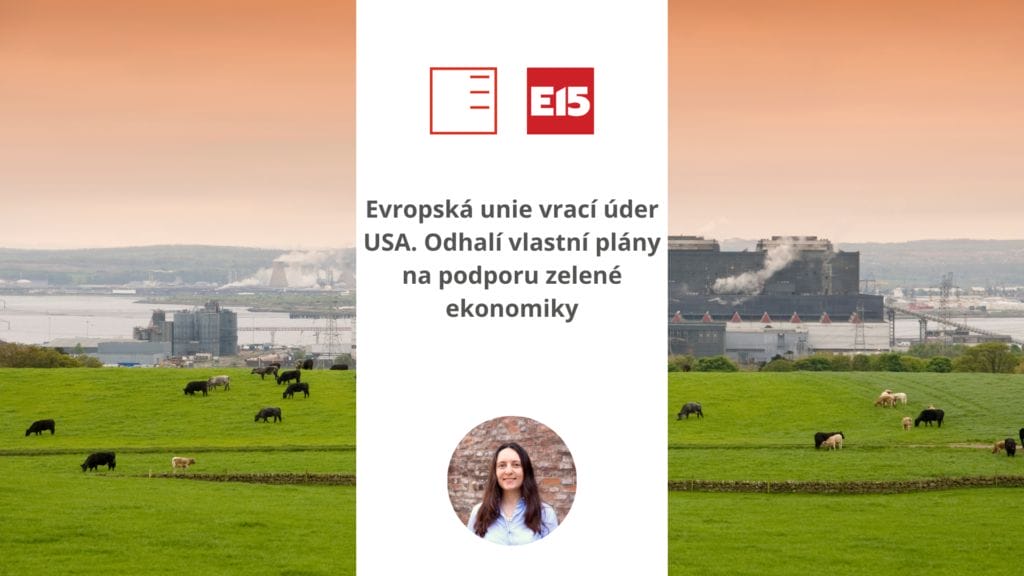
E15: The European Union strikes back at the US. EU unveils its own plans to boost the green economy
More info 14. 3. 2023
14. 3. 2023
This week, the European Commission will present two important proposals to the public - the Critical Raw Materials Act and the Net-Zero Industry Act. Both regulations are a response to the US Inflation Reduction Act of 2022 and aim to make the European economy more competitive and prevent a mass exodus of companies and technological innovation to the United States, Kateřina Davidová, our senior researcher, contributed to this topic.
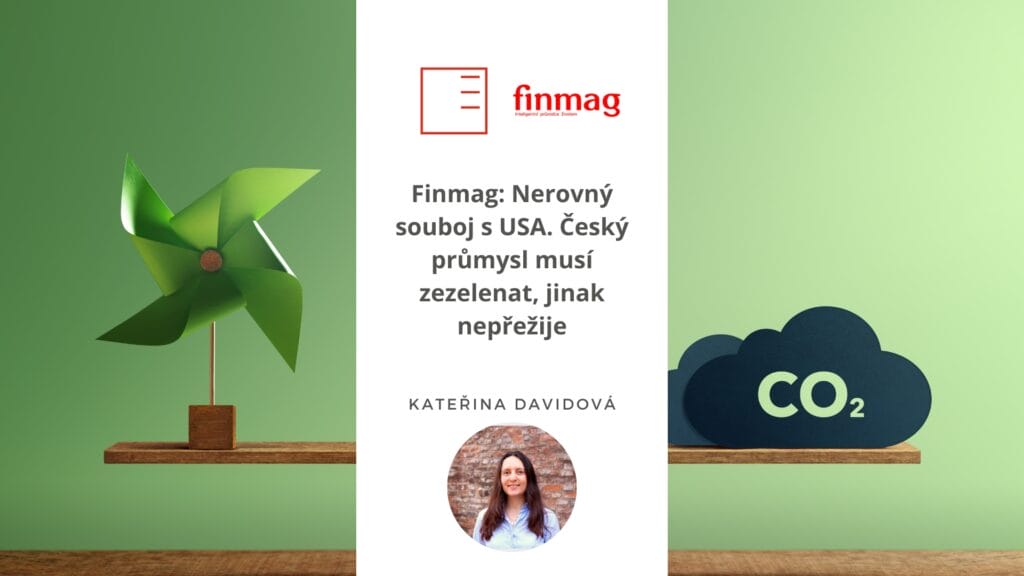
Finmag: An unequal fight with the USA. Czech industry must turn green to survive
More info 13. 3. 2023
13. 3. 2023
Relatively unnoticed, in August of last year, the Congress of the United States of America voted to pass the Inflation Reduction Act (IRA). This decision may be one of the most important steps in the fight against climate change this decade. Inflation Reduction Act is a massive investment package that can fundamentally affect the current approach of Europe and other countries to green transformation.
The transition to clean technologies, research, development, and production, can no longer be perceived purely as a question of reducing emissions, but also as a question of maintaining competitiveness on the global market. The green race has started and the Czech Republic should step up.
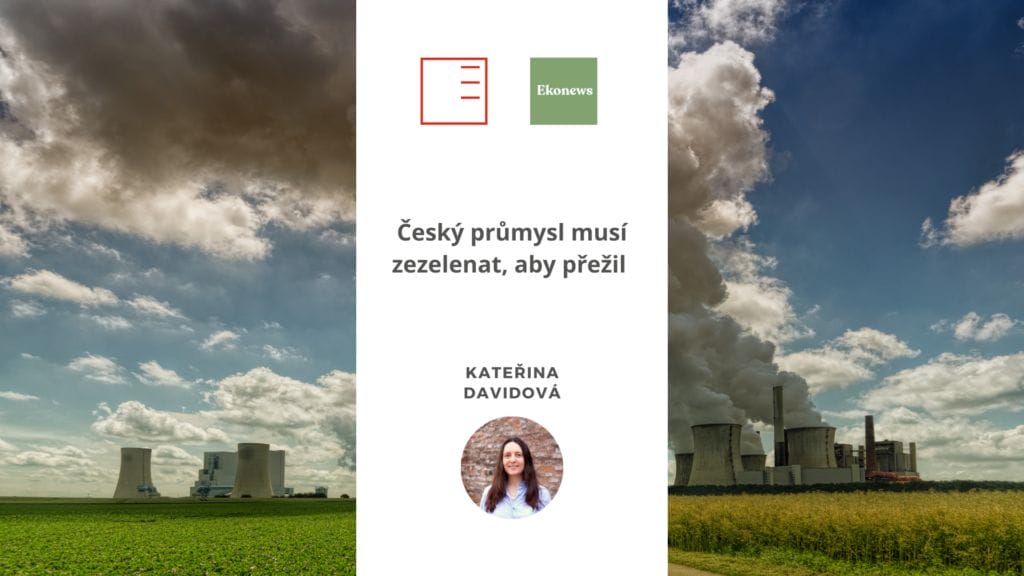
Ekonews: Czech industry must turn green to survive, says expert
More info 6. 3. 2023
6. 3. 2023
Last August, a decision was made that may be one of the most important steps in the fight against climate change this decade. Relatively unnoticed, the United States Congress voted to pass the Inflation Reduction Act. This is a massive investment package that could fundamentally affect the way Europe and other countries have approached the green transformation to date.
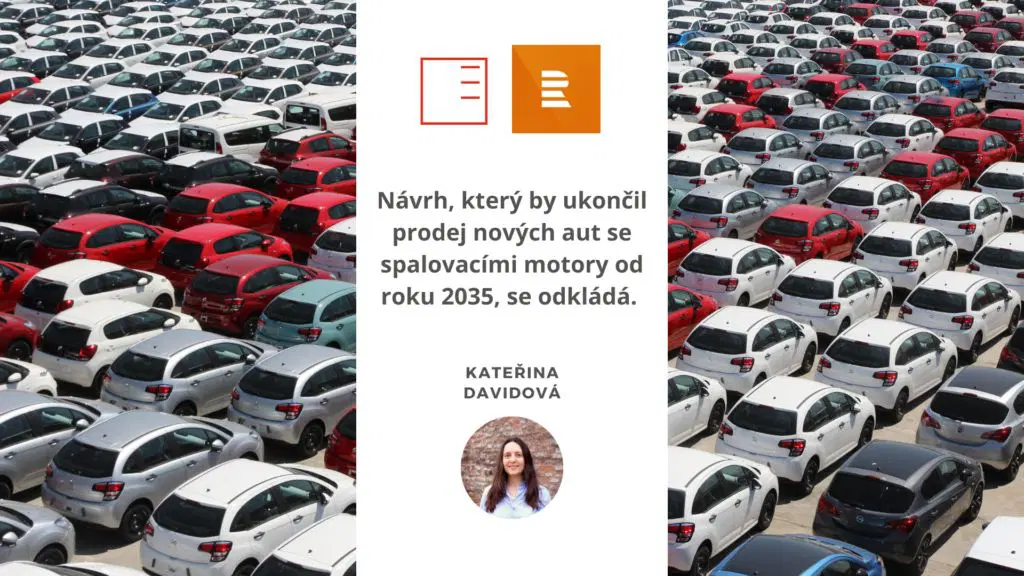
ČRo Plus: The proposal that would end the sale of new cars with internal combustion engines from 2035 is postponed
More info 6. 3. 2023
6. 3. 2023
Our senior researcher Kateřina Davidová commented for ČRo Plus on the postponement of the vote to end the sale of new cars with internal combustion engines, which is to apply from 2035. Its final approval was not supported at the last minute by Germany, which is concerned that the proposal does not include an exemption for vehicles that would burn synthetic fuels.
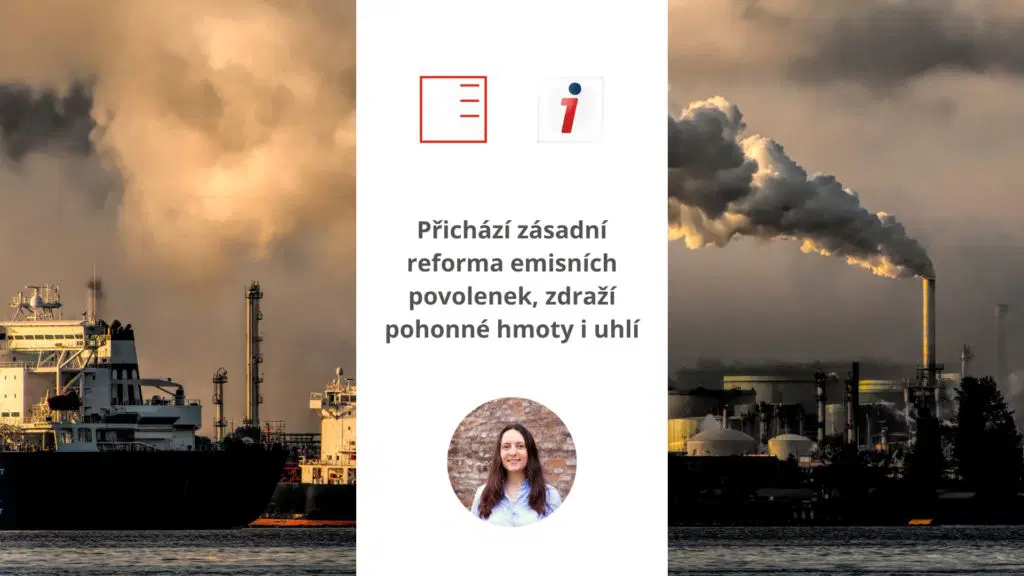
iDNES: Major reform of emission allowances coming, will make fuel and coal more expensive
More info 10. 1. 2023
10. 1. 2023
Against all odds, the EU is sticking to its goal of becoming climate neutral by 2050. The next step is a major reform of emission allowances, tentatively agreed by EU Council and European Parliament negotiators just before Christmas. Emissions trading (ETS) will also apply to buildings and road transport from 2027. Our Senior Researcher Kateřina Davidová commented on this issue for iDNES.

E15: Warm weather pushes gas price down to 65 euros. But climate activists are sounding the alarm
More info 6. 1. 2023
6. 1. 2023
Our senior researcher Kateřina Davidová was mentioned by the news portal E15 in their article about the mild winter weather contributing to cheaper gas. The article also highlights the possible consequences of the current "warm winter".
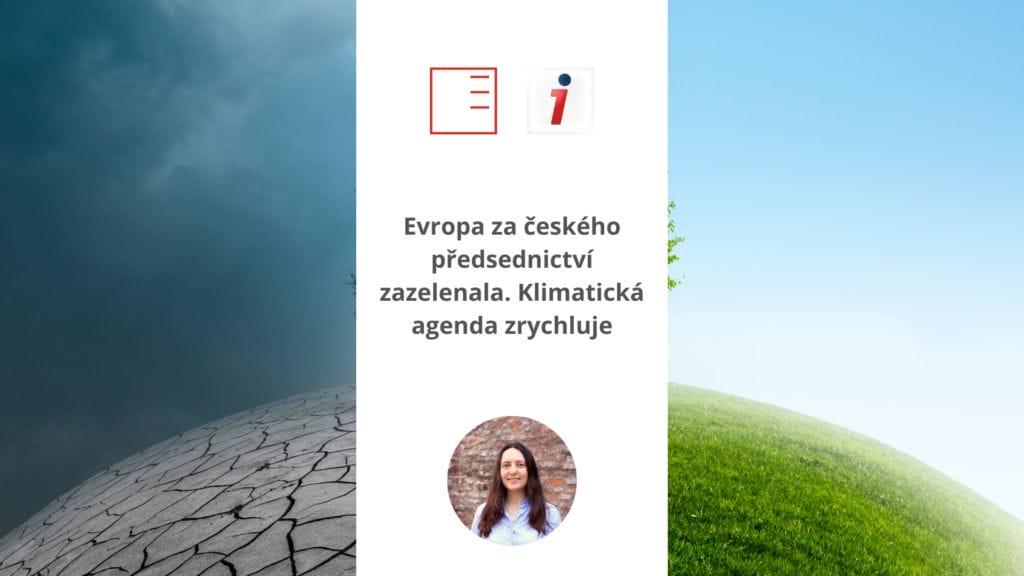
iDNES.cz: Europe has turned green during the Czech Presidency. Climate agenda accelerates
More info 27. 12. 2022
27. 12. 2022
The solution to the energy problems related to the war in Ukraine and Russian gas supplies was clear to the EU. It will lie in energy savings and, above all, in clean energy sources. What will energy reform look like and what plans does the EU have? Our Senior Research Fellow Kateřina Davidová commented on the Green Deal and the impact of the Czech Presidency on this topic.
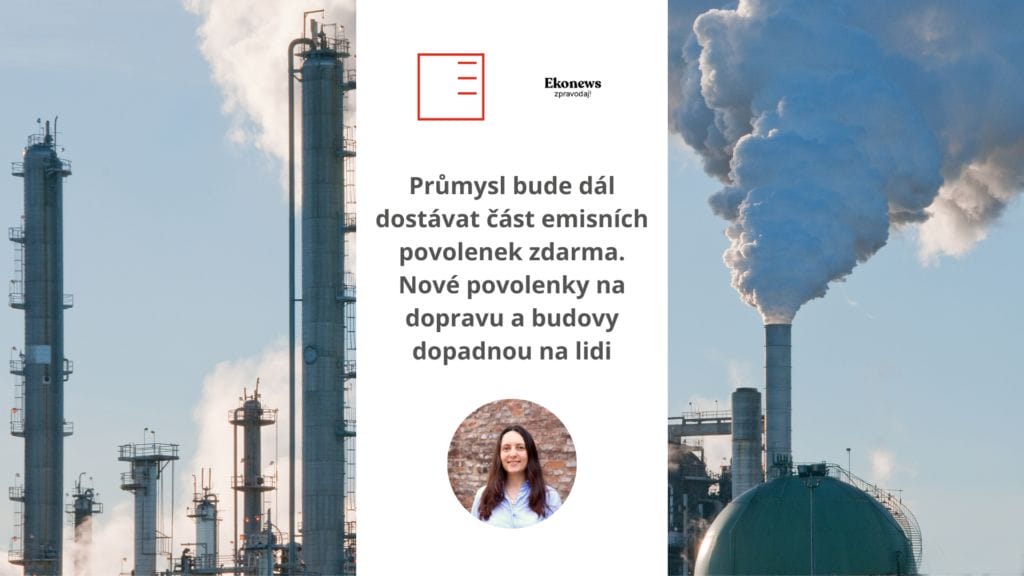
Ekonews: Industry will continue to receive part of its emission allowances for free. New allowances for transport and buildings will fall on the people
More info 20. 12. 2022
20. 12. 2022
The European Union's system for trading the emission allowances that polluters receive or buy to produce greenhouse gases will change. NGOs believe the shift will again benefit industry. Our senior researcher Katerina Davidova commented on the issue for Ekonews.
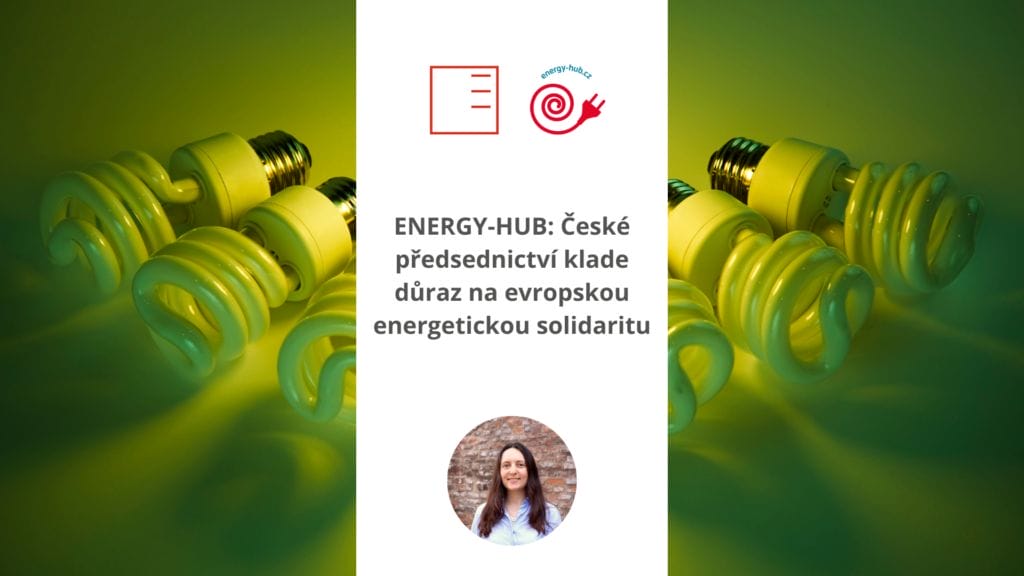
ENERGY-HUB: Czech Presidency emphasises European energy solidarity
More info 14. 12. 2022
14. 12. 2022
Our senior researcher Kateřina Davidová participated in the conference "How did the Czech Republic turn green during the European Presidency?". She commented on what she believes is the success of the Czech Presidency.
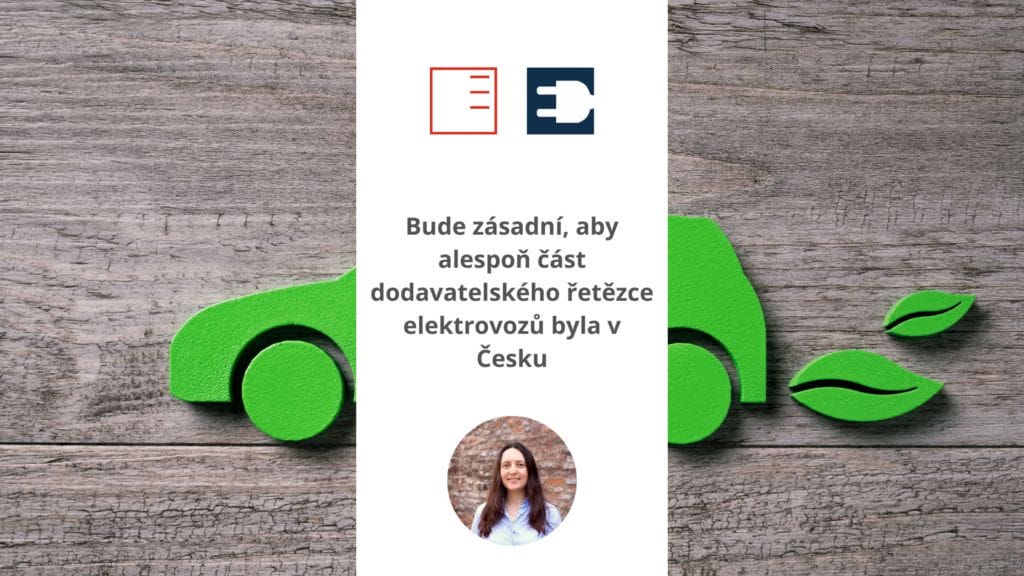
oEnergetice: Six months of the Czech Presidency have seen progress in the European energy sector
More info 14. 12. 2022
14. 12. 2022
On the occasion of the conference "How did the Czech Republic turn green during the European Presidency?" our Senior Research Fellow Kateřina Davidová commented on the progress of the EU's climate policy and energy transformation, as well as emission-free transport.

Aktuálně.cz: It will be essential that at least part of the electric vehicle supply chain is in the Czech Republic
More info 14. 12. 2022
14. 12. 2022
On the occasion of the conference on the topic "How did the Czech Republic turn green during the European Presidency?" spoke our senior researcher Kateřina Davidová. She mentioned that the Czech Republic has promoted a unified approach of the EU countries in the energy sector during the Presidency, for example by having a higher than the standard number of ministerial councils for this issue. She also commented on the ban on selling cars with internal combustion engines after 2035. She says that it will be essential that at least part of the supply chain for electric cars is in the Czech Republic.
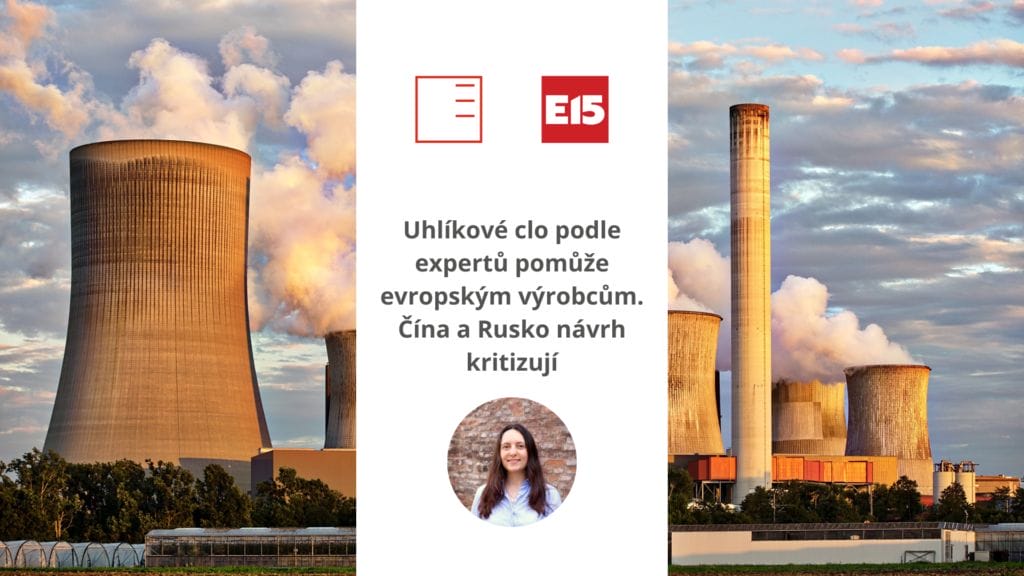
E15: Carbon tariff will help European producers, experts say. China and Russia criticize proposal
More info 13. 12. 2022
13. 12. 2022
According to world agencies, the European Parliament and the EU-27 are close to reaching a preliminary agreement on the so-called carbon tariff. The instrument, known as CBAM, is intended to prevent companies that produce in the European Union and have to pay for emission allowances there from being disadvantaged against companies from non-EU countries where climate regulations are looser. According to experts, the mechanism will mainly affect Russian companies. Our researcher Kateřina Davidová also commented on this issue.